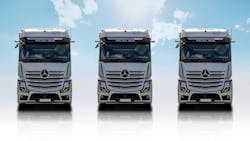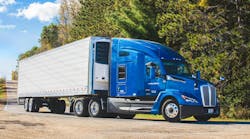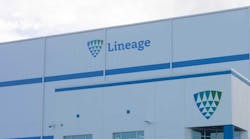Daimler Truck launches second-phase fuel-cell trials to help advance long-haul and temperature-controlled transport
Key takeaways
- Daimler Truck is expanding real-world testing of its GenH2 fuel-cell trucks.
- Partners will run the trucks across varied routes—including temperature-controlled freight—to evaluate performance, fueling limits, and daily usability.
- Results from these trials will guide small-series production in 2026, while broader hydrogen adoption hinges on slow refueling infrastructure growth.
Daimler Truck recently began the second phase of its customer trials for the Mercedes-Benz GenH2 Truck, involving five additional partner companies. The company, which develops commercial vehicles for global freight movement, will deploy the fuel-cell trucks with Hornbach, Reber Logistik, Teva Germany with its brand ratiopharm, Rhenus, and DHL Supply Chain for about one year.
The partners will run the trucks on their regular logistics routes across Germany to expand real-world testing and validate operating scenarios. Several of these routes include temperature-controlled work, with DHL Supply Chain pairing the GenH2 Truck with a fully electric refrigerated trailer to handle frozen and fresh products. Other use cases range from pharmaceutical distribution to recyclable materials and general cargo. All findings from the trial will support future series development and preparations for sales and service processes.
The initial phase of testing covered more than 225,000 kilometers (139,809 miles), with hydrogen consumption between 5.6 and 8.0 kilograms per 100 kilometers (62 miles). The Mercedes-Benz GenH2 Truck is built for long-haul freight, offering around 40 tonnes (44 U.S. tons) gross vehicle weight and approximately 25 tonnes (27.6 tons) of payload.
Its fuel-cell system delivers continuous output up to 300 kW, supported by a small buffer battery for peak-power demand and energy recovery. The truck operates on liquid hydrogen, which provides higher energy density, longer driving range per fill, and reduced transport requirements for fuel. Refueling takes place at dedicated stations in Woerth am Rhein and the Duisburg area.
Daimler Truck is also developing the next generation of its fuel-cell trucks and preparing a small-series run of 100 units planned for customer operations at the end of 2026. While the company is advancing both battery-electric and hydrogen-powered vehicles, hydrogen refueling infrastructure remains limited, delaying broader deployment. Large-scale industrialization of fuel-cell systems and series production of hydrogen trucks in Europe is expected in the early 2030s.
“With the fuel-cell truck in combination with our fully electric refrigerated trailer, we’re bringing a zero-carbon transport solution to the road that is fully powered by renewable energy,” said Katrin Hölter, CEO, DHL Supply Chain Germany & Alps. “Its deployment in operations on routes across Baden-Württemberg, Hesse, and North Rhine-Westphalia proves that forward-looking, sustainable logistics already works today—even for sensitive frozen and fresh products. Together with Daimler Truck, we are setting new benchmarks for zero-carbon transport and reinforcing our commitment to being the Green Logistics of choice.”
This piece was created with the assistance of generative AI tools and was edited by our content team for clarity and accuracy.


